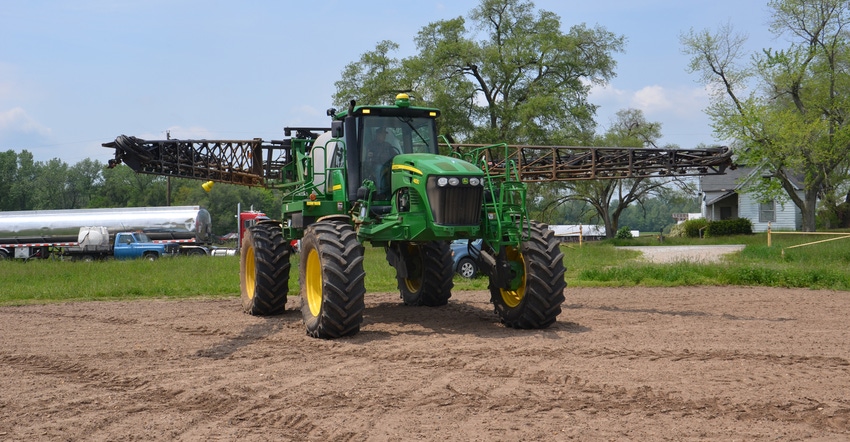
Times are tight for a neighbor, and he is trying to hang on. He wants me to custom-spray his 2,000 acres of crops this year since he doesn’t have a sprayer. We could work it in, but what should we charge him? He had hinted that he would like to trade labor rather than pay us to spray. How would that work?
The Profit Planners panel answering this question includes: David Erickson, farmer, Altona, Ill.; Mark Evans, Purdue University Extension educator, Putnam County, Ind.; Steve Myers, farm manager, Busey Ag Resources, LeRoy, Ill.; and Chris Parker, cattle, forage and timber producer, Morgantown, Ind.
Erickson: You need to value your custom spraying work at custom rates in your area. Once you have established your custom spraying rate per acre, you need to determine a fair wage rate for his labor. You can use these values to establish the basis for trading services equitably for both parties.
Evans: First, be wary that you are still inside your legal bounds for both your pesticide license and liability. For most states, pesticide application on someone else’s farming operation would be outside the parameters of a private applicator’s license. This would include when trading labor, grain or other items for payment compensation.
If you have a commercial applicator’s license, you would still need to be concerned about liability coverage when applying on land you are not actually farming.
To determine what you should charge him for spraying his crops, know your own costs, consider custom rate surveys for comparisons, and determine your fee, whether you are receiving payment or trading labor based on those benchmarks. If your neighbor is barely hanging on financially, you best consider trading for labor that could be promised and not delivered, if that is of concern.
Myers: First, you should charge for custom spraying so your operation would profit. Any good agreement should be mutually beneficial. So the second question for you would be this: Do I need the labor, and can he provide the labor I need? Third, all parties need to agree about that compensation, products used in spraying, who purchases those products, spraying priorities and potential liabilities. Custom work is still custom work, and the devil is in the details.
Parker: Spraying 2,000 acres for a neighboring farmer is a large task to take on in conjunction with your other farm work. According to the 2013 Purdue Bulletin, EC 130, Custom Rates, the cost for either a tractor-pulled sprayer or a self-propelled sprayer averages around $6.50 per acre. You may want to adjust since this latest data available is 5 years old. Based on $6.50 per acre, you’re looking at a $13,000 value for spraying his crops one time.
Trading labor would involve him providing equipment operation for you on a timely basis — such as combining, trucking, planting or so forth — worth similar value. If you can fit the added workload into your chores and feel it is the neighborly thing to do, be sure and have an agreement for the payment or services to be traded. Perhaps a trading of services that is not so time critical, like winter machinery repair help, might be easier on you. Tread lightly, as this could be a win-win, or not!

About the Author(s)
You May Also Like




